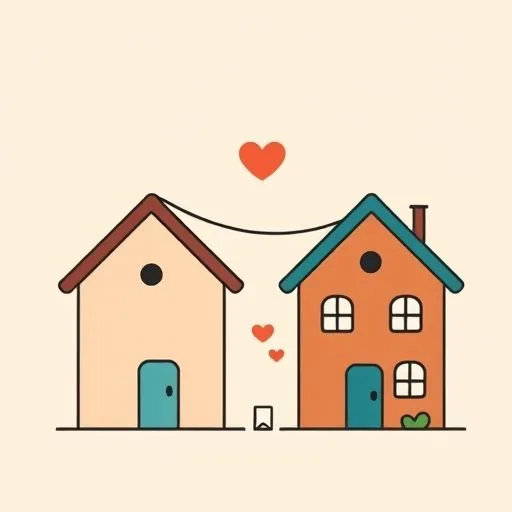
You know that moment? When your kids run to Grandma’s call but freeze mid-hug because they didn’t quite catch what she said in her dialect. My wife had this quiet flicker in her eyes—a mix of pride and worry—when our little ones nodded along, trying so hard. That’s when it hit me: This isn’t just about language. It’s about keeping her heart’s voice alive for them. And honestly? We’re all figuring it out together, one messy, beautiful attempt at a time.
The Quiet Panic of Loving Translation

Picture this: You’re huddled against the kitchen counter at 11 p.m., headphones on, rewinding Grandma’s voice note over and over. Your kid loved the story—“Baba told me ‘kitties in the sky’!”—but you know what she really said: “clouds like fluffy sheep” in her sweet Southern drawl. That little ache right here? That’s the silent prayer: “Please let her feel understood.”
We parents do this constantly. Choosing words that carry her warmth, not just the literal meaning. When Grandma laughs and says “chile, you’re somethin’ else!”, we don’t say “child, you’re unique.” We say, “Grandma thinks you’re her favorite silly bean!” It’s messy work—translating her accent, her cadence, the way she lingers on your name. But it’s real. And kids? They feel the difference. Our job isn’t perfect grammar. It’s making Grandma’s voice resonate in their bones.
Why Imperfect Words Carry More Love

I’ll never forget the night Grandma heard my son’s attempt: “Ba-ba mornin’!” instead of “Good morning, Grandma!” She cupped his face and just beamed—“My baby talks like me!” Not once did she correct him. Not once did she seem disappointed. Because she wasn’t hearing words. She was hearing him. His effort. His heart reaching back to hers.
That’s the secret no app or dictionary gets: Dialect isn’t just sound. It’s emotion etched in every syllable. When Grandma says “ain’t nobody sweeter than you”, she’s wrapping them in love. If we translate it coldly as “no one is sweeter,” we lose the hug in her voice. So we keep the flavor. “Grandma says you’re the sweetest little biscuit in the world!” Kids don’t need polished phrases. They need to feel her joy—that’s what sticks. And honestly? Those “oops” moments? When they mispronounce “mornin'” as “mowin'” like the lawn? Grandma laughs harder. Because love isn’t in the perfect word. It’s in the trying.
How a Neighbor’s Drawing Changed Everything

It reminded me of something that happened just last week. One evening, my wife shared a video of Grandma singing a lullaby in her dialect. A neighbor—whose own grandma spoke Tagalog—sent us her child’s crayon drawing. “Your boy made Lola smile all week!” it read. We stood there, stunned, tears in our eyes. Turns out? We’re not alone. So many parents are whispering phrases, recording voice memos, practicing pronunciation in the car.
That drawing taught us something vital: Connection isn’t about fluency. It’s about intentionality. When Grandma sends voice notes full of words the kids don’t know, we play them together. We guess what “gully” means (“like, super duper happy!”), we laugh at how she stretches “y’all”. It becomes our cozy ritual. And slowly? Grandma’s voice stops being “different” and starts feeling like home. Other families join in—sharing tips, sending drawings. It’s not about fixing the dialect. It’s about weaving it into the fabric of our story.
Start Small. Start Now.

Forget fluency. Just find one phrase Grandma says often. Maybe it’s “bless your heart” or “sweet tea time!”. Record her saying it. Play it for the kids while making pancakes or brushing teeth. Keep it simple: “This is how Grandma says ‘I’m glad you’re here.'” No pressure. No tests. Just the sound of her voice tucked into your day.
Here’s what my wife swears by: When kids struggle to answer Grandma, they don’t translate. Grandma watches them react. “Show me how you feel when Baba’s story makes you happy!” A dance. A hug. A drawing of fluffy sheep in the sky. Because Grandma doesn’t need perfect English. She needs to see their joy—that’s the universal language. So we’re ditching the stress. Tonight? We’re teaching our son to say “Baba, I love you too-much!” His way. Her way. And that warmth? It’ll travel further than any word ever could.
Love isn’t in the perfect word. It’s in the trying.
Source: Want to Go Global? YouTube Adds Multilingual Dubbing, PCMag, 2025/09/13 13:00:08
